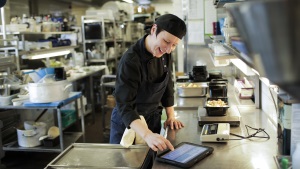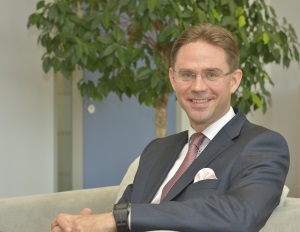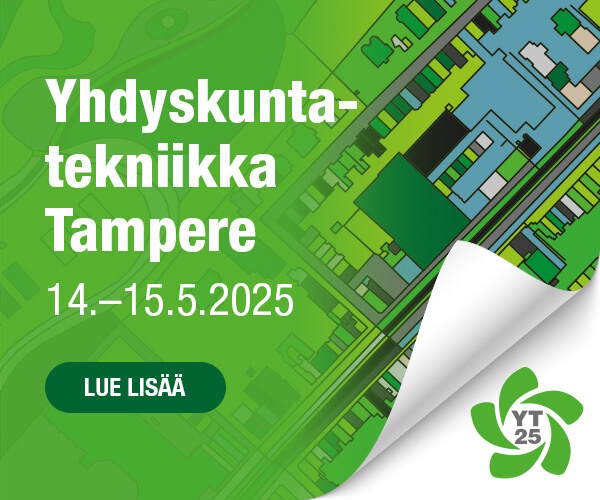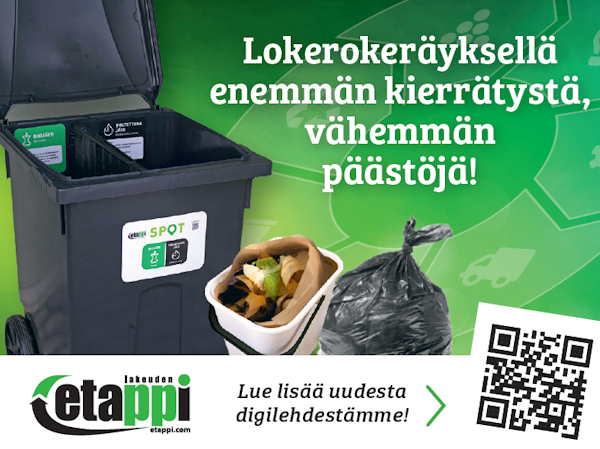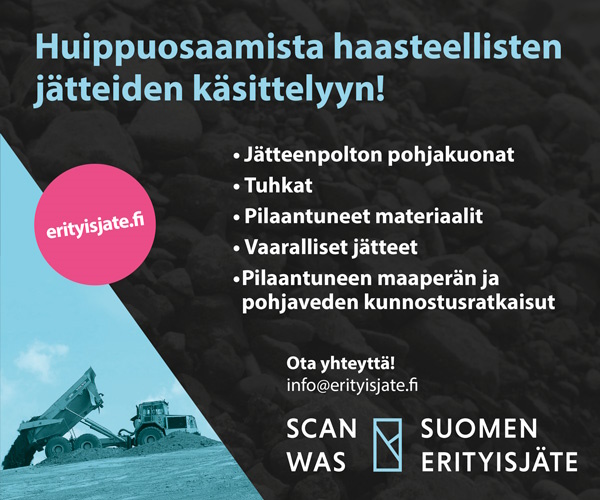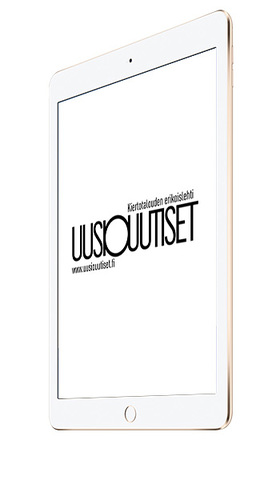These articles are published in the Special International issue of Uusiouutiset, Finnish Recycling News, on 31st of May 2017. New…
Becoming a pioneer
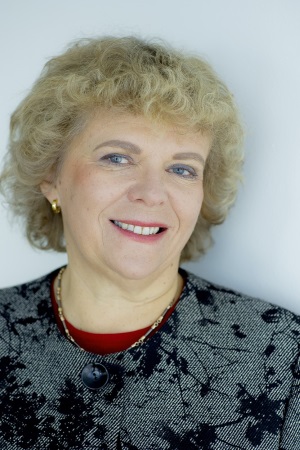
Photo: Sitra. “To function optimally, the circular economy should be based on ecosystems and industrial symbioses, rather than on efforts by individual companies. One man’s trash is another man’s treasure,” Kirsi Sormunen says.
An article from the Special international issue of Uusiouutiset Finnish Recycling News, published on 31st of May 2017.
Kirsi Sormunen sees the first World Circular Economy Forum—held in Helsinki in June—as a great place for networking and finding partners for the circular economy in practice
Elina Saarinen
“The circular economy has immense business potential. The title of pioneer in the circular economy is still up for grabs. We want to show the world that Finland is working consistently towards this goal.”
These comments are by Kirsi Sormunen, Professional Board Member, who heads the extensive circular economy steering group with Minister Kimmo Tiilikainen. The aim of the steering group is to implement the objectives and measures identified by Sitra in its road map to the circular economy in practice and create concrete solutions that are scalable for the international market.
Finland was the first country in the world to release its own circular economy road map. Finland aims to become the forerunner in the circular economy by 2025. The road map lists trials and measures that will be implemented within a couple of years in five focus areas: forest-based loops, technical loops, sustainable food system, transport and logistics, and joint actions. Examples of these can be found in this magazine (see page 34).
“Working with such a diverse group of people is an excellent opportunity to achieve concrete results. We want to make sure that this forum becomes more than just academic analysis.”
According to Sormunen, Finland’s goal of becoming the forerunner is realistic. Finland already has a large number of world-class enterprises of all sizes that use the foundations of the circular economy in their business. In the public sector, many municipalities have taken voluntary, active steps towards sustainability. Finnish consumers, on the other hand, have a reputation for being stingy, and conspicuous consumption has never gained much foothold here.
Even the current Strategic Government Programme makes a reference to the circular economy, but Sormunen thinks the measures recorded in it could be more ambitious.
Everyone knows each other
According to Sormunen, Finnish work for the circular economy has gained international attention thanks to its wide scope and pragmatic approach.
“In a small country like Finland, it is easy to build stakeholder networks, because almost everyone already knows each other. We can achieve things without excessive hierarchies or bureaucracy. Strong networks offer a way of achieving our agenda together.”
The first World Circular Economy Forum (WCEF), which will be held in June, is an opportunity to grow these networks and make them global. Sitra’s prestigious groups partners at the event shows that international interest towards the forum is high: The partners include the UN environmental programme, the European Commission, Ellen MacArthur Foundation, European Environment Agency, International Institute for Sustainable Development, World Resources Forum, the Nordic Council of Ministers, World Business Council for Sustainable Development, and Koli Forum. Key Finnish ministries are also involved.
Approximately 1,500 guests from 60 different countries have been invited to the forum, and there are hundreds of interested participants on the waiting list. The highly-regarded participants include the International Resource Panel.
Sormunen believes that the forum will improve Finland’s standing as the forerunner in the circular economy and in environmental matters at large. Sitra has protected the name of the event and plans to organise the WCEF again in Finland in 2019. Its aim is to make it into an annual forum for networking and promoting the circular economy. In 2018, the World Circular Economy Forum will be organised in another country. Countries such as Scotland, the Netherlands, Belgium and Canada have already expressed their interest.
In Sormunen’s view, current market economy trends will inevitably make operations more resource-efficient and favour closed loops. “Critical raw materials will become scarce, businesses must become more aware of their resource costs, and nature cannot be burdened above its capacity.”


